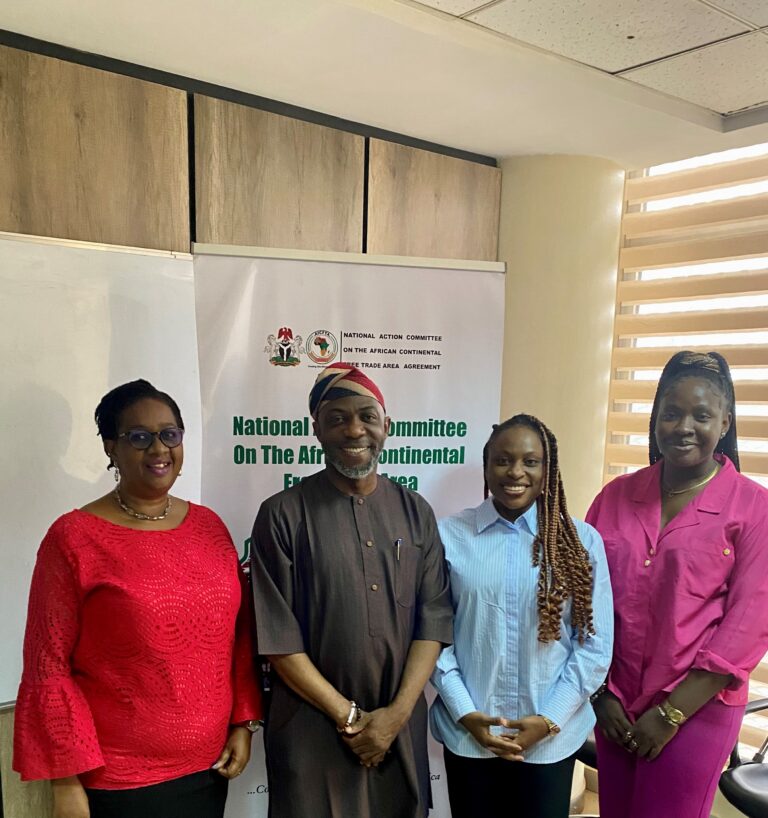- You are a veteran in the energy industry in Africa, can you tell us more about the work you have been involved in?
I have been proactively in the energy sector in the past 27 years and currently work as an Energy Policy and Regulation Consultant. My primary focus is on energy access programmes, electricity markets, regional integration projects, renewable energy/energy efficiency and gender mainstreaming. I have been involved in a number of projects all across Africa in the last two years advising both public and private institutions on policy, legal and regulatory issues in these areas. I also run an NGO, Ecogreen Foundation which is focused mainly on women in energy from the point of view of promoting advocacy in gender mainstreaming in energy projects as well as empowering more women to take up professional and executive roles in public and private energy institutions through mentoring and other programmes.
I started off my career as an in-house counsel with the then National Electric Power Authority-NEPA (the erstwhile vertically integrated state-owned electricity utility monopoly agency in Nigeria). This was a period where the power sector was largely managed as a state-owned utility in most African countries even though the power sector reform programme was then beginning to take roots in other emerging economies in Asia and South America.
Working in NEPA exposed me to several opportunities in negotiating large scale power plant construction and rehabilitation contracts as well as cross-border energy sales agreement as Nigeria exports electricity to Niger as well as Benin/Togo. I also had the privilege of being part of the team that was involved from the onset with the Nigerian Power Sector Reform programme which effectively took off in 1999 and eventually led to the enactment of the Electric Power Sector Reform Act (EPSRA), the establishment of the Nigerian Electricity Regulatory Commission (NERC) as well as the unbundling of NEPA/PHCN into several generation and distribution companies and one transmission company. I worked with the NEPA board committee on legal and regulatory responsible for the development of the EPSRA which subsequently resulted in the creation of the electricity sector regulator, NERC.
Working in NEPA exposed me to several opportunities in negotiating large scale power plant construction and rehabilitation contracts as well as cross-border energy sales agreement as Nigeria exports electricity to Niger as well as Benin/Togo.
Following the creation of NERC in 2005, I moved over there as one of the pioneer staff members with the mandate to set up the Legal, Licensing and Enforcement Division. Working at NERC was one of the more challenging aspects of my career as we had to put in place the basic regulatory framework to attract private sector participation into the Nigerian power sector and create the enabling framework that will boost investor confidence.
Together with my team, we were able to develop a number of the key Regulations required by NERC to kick-start its activities. This included the Business Rules of the Commission, the Regulation on Licence Applications, the Regulations on licence fees and operating levies; Regulations on Customer Complaints Procedures; Embedded Generation Regulations, Independent Electricity Distribution Networks Regulations well as the Regulation on Captive Generation. These first set of Regulations resulted in an influx of a number of private sector companies into the Nigerian power sector, many of whom were issued licences after having met the laid down conditions for the grant of licences. A number of successful IPPS were developed especially with respect to captive power and embedded generation where off-takers were private entities.
I was also responsible for setting up the Strategy and Project Monitoring Office (SPMO) in NERC that was directly responsible for advising the Commission on the strategy initiatives based on the Energy Policy and coordinating the development and monitoring of the organization’s five-year strategic plan. We were able to conduct a SWOT analysis on a sustainable path for the development of the Nigerian Power sector towards the ultimate privatization of the sector as envisaged under the Electric Power Sector Reform Act. We also engaged with all key internal and external stakeholders through a robust consultative process which led to the improvement of NERC’s processes and procedures as we realized the need to put in place an internal performance monitoring framework to ensure that NERC met its own targets as contained in the yearly activity plans.
I left NERC in December 2010 to take up appointment as one of the pioneer Council Members in the newly created ECOWAS Regional Electricity Regulatory Authority (ERERA) based in Accra, Ghana.
- More specifically, you were with ERERA, as a council member then as Chairperson, what is the role of the Agency and just how important is its work in facilitating investment? Discuss the regulatory framework for the regional electricity market you were instrumental in setting up.
ERERA was set up as regional electricity regulator for the Economic Community of West African States (ECOWAS). Its primary mandate is to regulate cross-border electricity trading within the ECOWAS region by putting in place a sustainable and transparent regulatory framework that will attract and encourage investment into the ECOWAS power sector. The establishment of ERERA itself is predicated on the objectives of the Energy Protocol signed in 2002 by the ECOWAS Heads of States and Governments. The Energy Protocol seeks to harness the abundant energy resources within the region to drive economic and social development leveraging on the economies of scales and mindful of the fact that the resources are not evenly distributed among all member states.
The ECOWAS Regional electricity market is unique in the sense that while the development of other regional electricity markets was borne out of the need of some member states with surplus electricity to sell power to other states with deficits in power supply, at the time of the establishment of ERERA, none of the ECOWAS member states was energy sufficient. In Spite of the energy deficit, a small amount of cross-border electricity trading has been going on between a few member states by way of bilateral exchanges. The role of ERERA is therefore to create the right enabling framework that will be able to attract the much-needed investment into the region and gradually develop a market from the current bilateral arrangements between a few countries with cross-border transaction of less than 7% of total electricity generated within the region, to a full-fledged power pool marked by surplus supply and competitive electricity pricing.
I left NERC in December 2010 to take up appointment as one of the pioneer Council Members in the newly created ECOWAS Regional Electricity Regulatory Authority (ERERA) based in Accra, Ghana. Today, ERERA itself serves a precedent for other regional economic blocs in Africa who are using the ERERA model to establish their own regional regulators.
ERERA is unique in the sense that it is a first of its kind, being a regional regulator with full powers and mandate to make rules and regulations binding on member states with respect to cross-border electricity trading. For me personally, this presented a unique learning experience as there were no precedents to fall back on and we had to innovate to come up with an acceptable and sustainable regulatory framework to meet the objectives of the region. Today, ERERA itself serves a precedent for other regional economic blocs in Africa who are using the ERERA model to establish their own regional regulators.
To drive the ECOWAS integrated energy vision, one of the first tasks we carried out in ERERA was to undertake a comprehensive diagnostics of the state of the power sector in ECOWAS member states bearing in mind that a basic degree of harmonization with respect to the regulatory frameworks, technical standards and market structures will be necessary to facilitate the development of the regional electricity market. The study revealed a wide divergence with regards to the status of development of the power sector in the 15 ECOWAS member states and it was therefore a bit challenging to come up with an initial set of minimum standards which every country will have to adhere with towards the establishment of the market. Following wide scale consultations across board, the ERERA Council was finally able to come up with a draft Directive on the Organization of the ECOWAS Regional Electricity Market which was approved by the Council of Ministers in 2013. The Directive, amongst other things, provided for a gradual development of the regional market in three distinct phases and empowered ERERA to develop/approve key documents including the Regional Market Rules, the regional transmission tariff methodology as well as model Power Purchase Agreements. In addition, all member states were directed to ensure the establishment of independent electricity sector regulators (with powers to set tariffs and monitor the market) and to also ensure at least the functional unbundling of utilities through cost unbundling of the various segments of operations i.e Generation, Transmission and Distribution activities. Member States were also required to ensure that enabling legislation allowed for open access to the transmission grid.
During my tenure as ERERA Chairperson, we were able to finally approve and sign off key regulations required for the launching of the regional market. These documents included the Regional Market Rules, the WAPP Operational Manual and the Regional Transmission Pricing Methodology. We also worked extensively in developing the model bilateral contracts and the Dispute Resolution Framework both of which were subsequently approved by the current ERERA council after the conclusion of our tenure. I am glad to say that all these efforts resulted in the official launching of the ECOWAS Regional Electricity Market which took place in June 2018.
Following the official launching, ERERA has been busy putting in place other key documents which will attract investment to the region. In my current role as an energy sector consultant, I am involved in assisting ERERA with the development of access rules to both the domestic grids of member states and the regional grid. The impact of this assignment is that eligible customers (to be defined by each member state) will be allowed access to the grid to purchase electricity directly from power generators without having to contract through a distribution company. This aspect of competition will not only encourage the emergence of more IPPs seeking to generate and supply power directly to eligible/bulk powers, but will also generally improve competition within the sector, serving as a basis for reliability and cost effectiveness.
In addition to this, ERERA is also working on helping member states strengthen their regulatory frameworks with respect to renewable energy. We are all aware of the centre stage that renewable energy now plays as a sustainable source of power generation and the ECOWAS region has abundant sources of renewable energy which if properly harnessed, will more than adequately meets the energy needs of the region. With the increase in investment in renewable energy in the region, a robust regulatory framework serves as an enabler in creating the right environment and to provide investors with answers to key issues including pricing, off-take arrangements as well as market structure.
In my current role as an energy sector consultant, I am involved in assisting ERERA with the development of access rules to both the domestic grids of member states and the regional grid. The impact of this assignment is that eligible customers (to be defined by each member state) will be allowed access to the grid to purchase electricity directly from power generators without having to contract through a distribution company.
- From your experience working at regulatory agencies at the regional (ERERA) and national level (NERC), what would you say investors would describe as “favourable market and regulatory conditions” and what sort of incentives would you say are paramount to securing investors’ interest?
I will say that generally, investors first of all, look out for a clear, predictable and non-discriminatory regulatory framework backed by a consistent policy defined by implementable roadmaps and targets as to where the sector is headed. This can be translated into having a tariff methodology that is cost- reflective, ensuring a competitive power generation procurement process based on an energy plan and ensuring that there is strong and fair dispute resolution mechanism in place. Another important factor that investors are often concerned with is the level of government intervention in the sector as too much intervention and the inability of the regulator to act independently is always a disincentive for investment.
In practice, the challenge I have seen in sub-Saharan Africa and which we must all strive to tackle remains the disconnect between theory and practice, in other words, the ability of the regulators to put into practice, the provisions of enabling laws. This challenge is hinged on the fact that a number of regulators are neither financially nor operationally independent which makes it very difficult to carry out key responsibilities. With reliance on Government for subventions to carry out their tasks, limited funding, human resources constraints coupled with undue government interference, most regulators still face an uphill task in complying with regulatory best practices.
Nonetheless, a number of countries have continued to attract investment into the power sector mostly through ensuring that the right price signals are put in place as one of the key expectation of every investor is the assurance of a reasonable return on investment. The financial viability of the power off-taker (which in most countries in Africa still remain the state-owned utility) is also a determinant in where investment goes. Regulators must therefore endeavour to put in place certain regulations such as the Uniform System of Accounts to enable utilities migrate toward cost efficiency and removal of cross-subsidies across the various segments of the industry. Even where a cost reflective tariff methodology is in place, utilities that have hitherto operated a unified cost system must build capacity to enable them implement cost separation and to operate more efficiently. This usually does not come willingly and it is therefore the role of the regulator to mandate this cost unbundling in order to create a level playing field and give private investors that assurance that they are competing evenly with the public utilities.
Nonetheless, a number of countries have continued to attract investment into the power sector mostly through ensuring that the right price signals are put in place as one of the key expectation of every investor is the assurance of a reasonable return on investment.
A market structure that also assures open access to the grid, especially for eligible customers, is also an incentive for investments as investors are assured of a wider number of off-takers especially those who have the capacity to pay.
With regards to vulnerable customers, an important consideration will be how targeted subsidy, meant to ensure access to energy for this group of customers, is structured either through tariff mechanism like lifeline tariffs or a more structured subsidy package. This is especially necessary with regards to rural electrification and deployment of off-grid renewable energy solutions where affordability by the targeted off-takers remains a key issue. Luckily, there has been a number of innovative approaches to tackling this challenge in some countries like Kenya and Tanzania that has led to more investment in renewable energy.
- At the project or firm level, what would you describe as features of investable energy projects or investable energy businesses that Africans should pursue?
Personally, from my experience in the last couple of years working as a consultant in the energy sector as well as a budding social entrepreneur with a focus on rural renewable energy projects, I see a great deal of opportunity for investment in small scale distributed energy or off-grid energy projects. Access to modern energy in rural sub-Saharan Africa still remains at an abysmal low of less than 20% creating a huge market for energy projects in the rural areas.
However, this yawning market niche also has a few challenges which investors are often at a dilemma to resolve especially with regards to the ability of rural off-takes to pay the market price for energy services. I believe that in structuring energy projects towards ensuring sustainability, investors should focus on a more integrated project approach which will address a number of other developmental challenges that hamper access to funds for rural dwellers and consequently, the productive use of electricity. I have been involved in structuring a number of rural projects in countries like Zambia, Ghana and Eritrea and I have found that implementing rural energy projects in silos do not always yield the desired outcome. To a large extent, majority of people leaving in the rural areas are small scale farmers and agro-processors who rely on diesel to operate their small processing plants. Typically, a project which provides electricity only, may not necessarily result in improved productivity if nothing is done to also enhance or upgrade the efficiency of the processing plant. Likewise, the absence of good and reliable water supply also means that the farmer may be unable to improve crop yields, the primary source of his raw materials. An integrated project therefore which looks at the entire value chain, providing solutions towards improved agriculture yields, clean water and cheaper energy as a package will more likely yield sustainable returns for the beneficiaries and ensure that they earn enough to have disposable income that will guarantee payments to the investor.
I also will like to emphasis on the intersection between energy projects and gender main-streaming. I am often amazed at the sheer number of rural women who are involved in the entire value chain of various enterprises in rural communities and the tenacity and commitment with which they face each and every task. It is also saddening to realize that typically in project planning, not much effort is made at the gender impact of projects to leverage at the opportunity presented by this very industrious sector of the populace. Women constitute the majority of the workforce in these communities and often have to multi task as farmers, entrepreneurs and homemakers and do in fact contribute substantially to the economy of these communities. A number of projects which have been undertaken without a thorough gender assessment have not been successful as in some cases where women are meant to the targeted beneficiaries, the intended outcome was not met as the women’s actually need were later discovered to be different. I have also seen a number of projects that have partnered with local co-operatives run by women which I believe is a very good model as such projects have often proved to be successful based on the local knowledge base provided through such partnerships.
With regards to vulnerable customers, an important consideration will be how targeted subsidy, meant to ensure access to energy for this group of customers, is structured either through tariff mechanism like lifeline tariffs or a more structured subsidy package.
Investors in the energy sector must therefore ensure that proper social and gender impact assessments are undertaken and typically, the result will also support my postulation that the more successful projects are those that are more wholly integrated taking into cognizance how other aspects of development can be tackled.
Finally, it is also important that these integrated projects models take into cognizance the peculiarity of the places where such projects are planned and investors must be innovative enough to understand the peculiar needs of each community and structure the projects accordingly. Finding ways of engaging the local communities in such projects are also very beneficial. All too often, we emphasis quite a bit on replicability which generally is a good concept, but realistically, you will be surprised at how different communities within the same country can be, not to talk of in different countries. While we can always learn from successful energy projects in different parts of Africa, investors must continue to innovate and think outside the box to provide solutions aimed at ensuring that the sustainable development goals especially with regards to the Sustainable Energy for All targets are largely met in sub-Saharan Africa.
- If you were to describe one thing (or a few things) that could facilitate access to capital for energy businesses in Africa what would this (or they) be?
One recurring challenge I continue to see as militating against access to capital for energy businesses is the capacity gap, on the part of some entrepreneurs, with respect to structuring and developing energy projects which financiers could regard as “bankable”. While there are a number of entrepreneurs with excellent ideas on how to provide energy solutions, putting together a business plan to meet the conditions and expectations of financiers remains a major challenge.
I therefore believe strongly that a lot more has to be done in building the capacity of investors (especially the smaller entrepreneurs) in developing bankable business proposals as they do not usually have the means to outsource and hire specialized companies that have the capacity to provide some of these services.
I also think that that it would be useful to have more initiatives that assist in matching potential investors with financiers towards ensuring that brilliant ideas are structured professionally and presented to financiers who also have funds earmarked for such projects. All too often, the contradictory narrative in the African energy sector is while investors lament the absence of funds to implement projects, financiers on the other hand complain about low access to funds due to absence of bankable proposals.
Investors in the energy sector must therefore ensure that proper social and gender impact assessments are undertaken and typically, the result will also support my postulation that the more successful projects are those that are more wholly integrated taking into cognizance how other aspects of development can be tackled.
I also think that there is also need to look at financing from the bottom up approach in the sense that most funds are targeted at the investors with little or no emphasis on the beneficiaries who also require some sort of structure financing packages to enable them pay for energy services which are largely un affordable by most rural dwellers. We can learn from the Bangladeshi model where infrastructure funds were set up to enable not only investors but also beneficiaries/customers in rural communities to access funds through community banks for the purpose of acquiring needed energy services typically by way of solar home systems. Availability of such funds will make it easier for business models proposed by investors to show viability through a credible and sustainable repayment structure.
One recurring challenge I continue to see as militating against access to capital for energy businesses is the capacity gap, on the part of some entrepreneurs, with respect to structuring and developing energy projects which financiers could regard as “bankable”.







